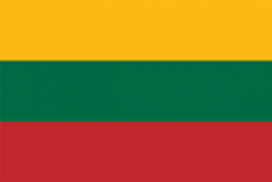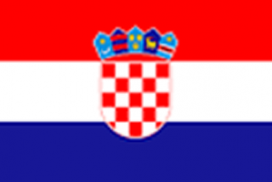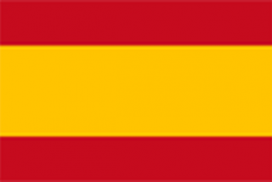After a divorce with her Latvian husband, Monika, a young Latvian woman, is living in Riga with her school-aged twin girls. Lonely and sad, she starts internet relationship with an Italian young man, Alessandro. The new romance seems promising and they meet a couple of times in Verona and a few times in Venice. After some time, Monika realizes she is pregnant. Alessandro seem to be very happy about this, he comes to Riga, proposes to Monika and invites her to live together in Italy. He promises to find them a nice house close to Milano, school for twins and all the happy life thereafter.
At the end of May, Monika and Alessandro get married in Riga and at the beginning of June, right when the school holiday starts, Monika moves to Italy with her twins. She informs the twins’ father that she is going to Italy for the kids’ holiday and intends to return on 1st of September. The kids are still registered in Riga, keeping the place at school.
In July, a baby boy is born in Italy. He has double nationality, Italian and Latvian. However, the couple seems not to be getting along in real life. The family still lives in a small temporary apartment, after the birth of the child the husband rarely comes home and they often fight. The summer is ending and unsure about the situation, Monika decides to return home to Riga. She sends SMS to Alessandro telling him that she wants to take the child to Latvia and Alessandro replies “I am not stopping any trips or making any problems”.
Back in Latvia, she registers the baby as living in Riga, and the twins go back to the old school. She claims that she always saw her move to Italy as a ‘conditional’ as she was willing to give a try living with her new husband, but she was actually not sure this was going to work.
In February, Alessandro, having decided that family life is not for him, submits divorce petition to a court in Riga. He also requests the baby boy to be returned to Italy and to rule that he should live with the father. Alessandro also states he would like Monika to return to Italy with the baby and that he will give some support to Monika (for the first 12 months), as he understands that the baby needs her care until he finds some help. Monika claims she is fully settled in Riga, she always lived here with her kids. She also argues that returning to Italy would mean she is abducting her other two children, as the twin father would not consent to them leaving Latvia.
- Has Latvian court jurisdiction to rule on divorce?
Questions to be analysed: jurisdiction on divorce matters; habitual residence of adults, continuing habitual residence
Applicable legislation:
- Jurisdiction on divorce: Article 3 Brussels IIa Regulation
- Has Latvian court jurisdiction to rule on parental responsibilities?
Questions to be analysed: jurisdiction on parental responsibility matters, habitual residence of the child, habitual residence of very small babies, change of habitual residence
Applicable legislation:
- Jurisdiction on parental responsibility matters: Article 8 Brussels IIa Regulation
- Possibility to apply rules on prorrogation of jurisdiction to hear on the child’s custody according to Article 12.1 Brussels IIa Regulation.
EU case law:
- CJEU, 2 April 2009, C-523/07, A, (EU:C:2009:225)
- CJEU, 22 December 2010, C-497/10 PPU, Mercredi (EU:C:2010:829)
- CJEU, 15 February 2017, C-499/15 PPU, W and V v X (EU:C:2017:118)
- CJEU, 8 June 2017, C-111/17 PPU, v PQ. (EU:C:2017:436)
In March, Alessandro files an application to the Italian Central Authority assuming child abduction.
- Do we have a child-abduction situation here?
Questions to be analysed: jurisdiction on parental responsibility matters, habitual residence of the child, habitual residence of very small babies, custody rights, the concept of child abduction, removal from/ non-return to the State of habitual residence, rules for jurisdiction in child abduction cases, return proceedings
Applicable legislation:
- Jurisdiction on parental responsibility matters: Article 8 Brussels IIa Regulation
- Jurisdiction in cases of child abduction: Articles 10 and 11 Brussels IIa Regulation
- 1980 Hague Convention on Civil Aspects of International Abduction of Children
EU case law:
- CJEU, 2 April 2009, C-523/07, A, (EU:C:2009:225)
- CJEU, 22 December 2010, C-497/10 PPU, Mercredi (EU:C:2010:829)
- CJEU, 15 February 2017, C-499/15 PPU, W and V v X (EU:C:2017:118)
- CJEU, 8 June 2017, C-111/17 PPU, v PQ. (EU:C:2017:436)
- CJEU, 11 July 2008, Rinau, C-195/08 PPU (EU:C:2008:406)
- CJEU, Bradbrooke v Aleksandrowicz, C-498/14 PPU (EU:C:2015:3)
In April, the Latvian court grants divorce and establishes that the child should live with his mother. Alessandro gets visiting rights. The return of the child is not considered and the court considers that a child was never habitually resident in Italy. Disappointed with the ruling he submits appeal, however the appeal court agrees with the court of first instance. The final judgement is issued.
- Can Alessandro apply to the Italian court asking return of the child on the basis of Article 11(8)? He heard of Article 42 certificate and sees it as his last hope.
Questions to be analysed: rules for jurisdiction in child abduction cases, return proceedings, ‘overruling mechanism’ and possibilities of its use, Article 42 certificate, conditions for issueing the Article 42 certificate
Applicable legislation:
- Return proceedings: Article 11 Brussels IIa Regulation
- 1980 Hague Convention on Civil Aspects of International Abduction of Children
EU case law:
- CJEU, 11 July 2008, Rinau, C-195/08 PPU (EU:C:2008:406)
- CJEU, 22 December 2010, Zarraga v Pelz, C-491/10 PPU (EU:C:2010:828)

 Lietuvių
Lietuvių Hrvatski
Hrvatski Español
Español Italiano
Italiano